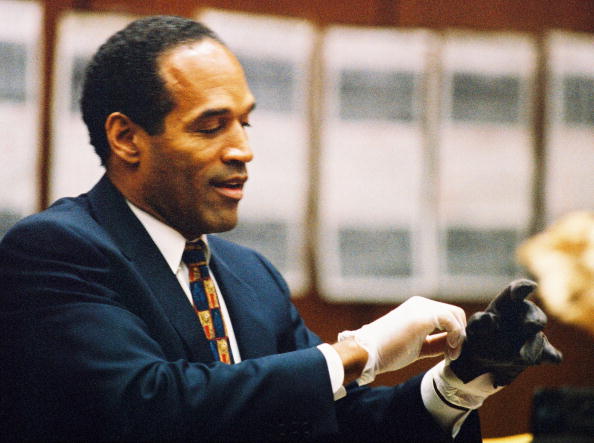
Source: Gilbert Carrasquillo / Getty
Monique Pressley reached public prominence as a legal analyst, political commentator and eventually as the attorney for Bill Cosby when he was in the midst of his sexual assault case. Now a few years later, the attorney has been suspended indefinitely because of claims that she misused clients’ funds.
According to DailyMail.com, Pressley would allegedly demand upfront payments from clients and then she would cash the money and deposit the funds into personal accounts, according to legal documents.
The self-described Democratic strategist, who defended Cosby and then would later quit his team in 2016, was suspended from practicing law in Washington D.C. back in August 2019. The suspension was “based on disability” and was determined after a month of investigation from a disciplinary counsel, who said they presented “clear and convicting evidence” of her misconduct and suggested that she be disbarred.
Three of Pressley’s former clients accused her of taking retainers and quickly withdrawing the funds for personal use without doing substantial work. The first complaint against Pressley was from Edwin and Paula Amaker, a couple Pressley and her husband Carlton knew from church where they both acted as elder members.
Back in September 2013, Paula hired Pressley to represent her in a claim against her ex-business partner. She agreed to give Pressley an advanced payment of $5,000 and an hourly rate of $425, according to legal papers. Pressley told Paula she was going to hold the $5,000 in an escrow account and withdraw the money as she earned it. However, according to the legal documents, Pressley didn’t have a trust account at that point in time. The documents say that Pressley cashed the $5,000 a day after receiving the check.
After working on the case for the next two months, Pressley told Paula that the case would likely go to trial and she gave her the option to pay a flat fee of $3,000 to complete the case, instead of working for an hourly rate. Paula agreed and Pressley immediately cashed the check.
Then in October 2014, over a year after hiring Pressley, Paul said she felt “more and more upset and desperate because she was not seeing any results or evidence of work being done,” according to legal papers. Paula’s husband Edwin Amaker had to even speak to Pressley’s husband Carlton, who said he was going to handle the case even though he wasn’t a lawyer.
“For almost two years, between October 2014 and September 2016, [Pressley] did not have any communication with Paula,” the legal docs read. After Carlton “took over” the case, “Mr. Pressley continued to lead Mrs. Amaker to believe that her case was progressing.”
In October 2016 when the Amakers sat down with Pressley to talk about the drawn out case, Pressley allegedly told them that if they wanted to proceed, they would have to “pay several thousand dollars for additional expenses.”
This is when Paula filed a complaint against Pressley and demanded a refund, which as of April 2019, she has yet to receive, according to legal docs.
In another February 2015 complaint, Pressley agreed to represent Billy Greer in his gender and age discrimination lawsuit. According to legal docs, she charged Greer “a rate of $350 per hour and asked that he pay $2,400 in advance to litigate the case through the motion to dismiss.” At first, Greer tried to pay Pressley via a cashier’s check but she said she only would take cash. The legal documents say she “drove around the corner to a nearby bank,’ making Greer go inside to cash the check. He returned to her vehicle and handed her the $2,400 in cash. Pressley then deposited the amount into her husband’s overdrawn business account, restoring the balance to $2,054.74, according to documents.
In just two weeks, the account dipped down to $121, as the money was spent on “gas, food, cash withdrawals, and other day-to-day expenses,” the legal papers say. During this time, court papers say Pressley “had done no work on the case other than meeting with Mr. Greer and attending the five-minute status conference.”
In April, Pressley said the $2,400 had been “exhausted” and she would require an additional $7,500 flat fee to finish the remainder of the case, otherwise she would be done representing Greer, according to legal docs. Greer reluctantly paid and the money, once again, went to the business account of Pressley’s husband.
When Greer’s case was dismissed in August, he found out that Pressley had fallen short in her representation, which caused the court to dismiss his suit, according to the documents.
In the third and final listed complaint, Pressley was hired by Randal and Tara Landers in March 2017 to investigate the circumstance of their son’s suspicious death and to relay their concerns to the U.S. Navy. They agreed to pay Pressley $15,000 in advanced fees and to give her an hourly rate of $625, according to legal docs.
They wired the $15,000 to Pressley’s escrow account after signing papers. The account had an overdrawn balance of -$407, according to documents, and the new money brought it to $14,588.01. Pressley had taken out nearly all the money by transfer or cash withdrawal less than a week later. In two weeks, the account had a negative ending balance of –$549.99, say legal papers.
Three months later in June, Pressley texted Randal requesting they discuss his budget moving forward with the case. However, Randal grew concerned that Pressley spent his $15,000 without doing any work so he requested an invoice of the hours she had worked. When she didn’t provide any documents, Randal terminated their business relationship. He requested Pressley return the remainder of the $15,000 retainer “given how little she had accomplished on his case” and considering she only “acknowledged 10 hours of work for June.” Randal has yet to receive his refund from Pressley, say legal documents.
“He received nothing of value for the $15,000, which he paid using part of his son’s death benefit,” say the documents.
Despite being served with a “specification of charges” back in July 2018 and again in October 2018, Pressley failed to file “an answer to charges brought against her despite being given several opportunities to do so.” She also never appeared at hearings and according to the documents, “She engaged in a pattern of dilatory tactics at every step of the process.”
SEE ALSO:
Donations Pour In For Moms 4 Housing As Evicted Women Claim Victory
Facing Eviction, John Gray Also Owes $75,000 In Unpaid Wages, New Lawsuit Says
















